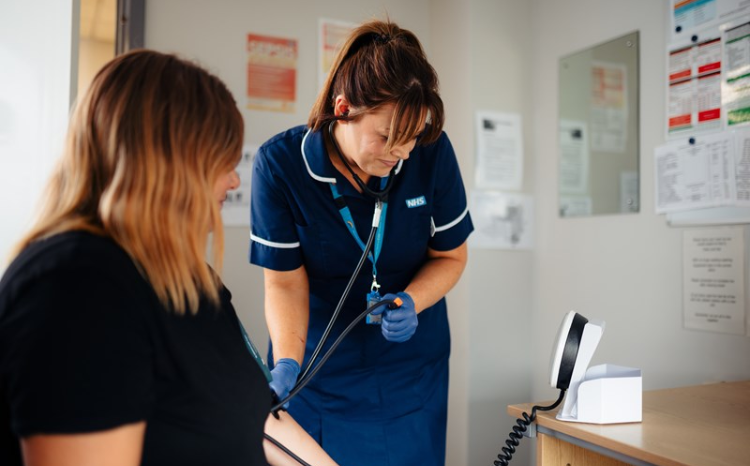AI software improves odds of good maternity care by 69%, say researchers
- 30 October 2024

- Women are more likely to receive good care during pregnancy when AI and other clinical software tools are used, a large review of research has found
- Academics from the University of Birmingham evaluated the impact of almost 50 different types of clinical decision support systems (CDSS) in maternity settings.
- They found that the odds of improved outcomes was 1.69 times higher in women cared for using CDSS
Women are more likely to receive good care during pregnancy when AI and other clinical software tools are used, a large review of research has found.
A paper, published in eClinicalMedicine in October 2024, includes a review of more than 12,000 papers and 87 articles for different AI and related software tools, investigating the impact of their use in maternity settings.
The findings revealed that although there were variations in each situation and implementation of clinical decision support systems (CDSS) reviewed, most showed improvements in outcomes for the pregnancies.
Dr Neil Cockburn, lead author and research fellow in health informatics at the University of Birmingham said: “Maternity services are under huge pressure in the UK and internationally, and that makes it challenging to offer safe services.
“We can see this in the huge rise in hospitals receiving support from the maternity safety support programme.
“One solution is the use of AI and related software tools called clinical decision support systems to help expecting families and healthcare workers to make safe decisions, so we looked at every evaluation of these kinds of software ever published in academic literature.”
Academics from the University of Birmingham, Birmingham Health Partners, Keele University, Warwick University and the Shrewsbury and Telford Hospitals NHS Trust evaluated almost 50 different types of CDSS across 49 high-income and 38 low-and-middle-income countries.
A meta-analysis of 35 included studies found the odds of improved outcomes was 1.69 times higher (69%) in women cared for using CDSS, with data from over 5.2 million pregnancies in both high-income and low-and-middle-income countries. These numbers refer to the odds ratio, the main measure used in the analysis that compares quality of care delivered using CDSS versus care delivered without the use of CDSS.
A study led by Bristol University, that was reviewed, trialled a software program designed to help women decide if they wanted a vaginal birth after previously having a C-section.
This supported women to feel more confident about their decisions by providing them with information about risks and benefits, while reducing the rate of C-section overall.
Another study reviewed, supported by the Tommy’s National Centre for Miscarriage Research, trialled a risk-prediction model to accurately triage women as at low risk of having an ectopic pregnancy, which can be life-threatening in some cases.
These examples highlight the possibility for CDSS to support both clinical and individual decision-making concerning maternity care.
Dr Cockburn said: “The government has made digital transformation of the NHS a top priority to improve quality of care and reduce costs, and CDSS will be a key technology in delivering these improvements.
“However, there needs to be systematic, rigorous, and rapid evaluation of the tools being used in order to ensure they are doing what is expected while keeping up with the pace of change in technology.”
The research team noted that while substantial contributions can be made to maternity care with CDSS, it relies on appropriateness to each unique situation.
They hope that this first systematic review will encourage evaluations of different CDSS to continue aiding clinicians, developers, and researchers in maternity care.





